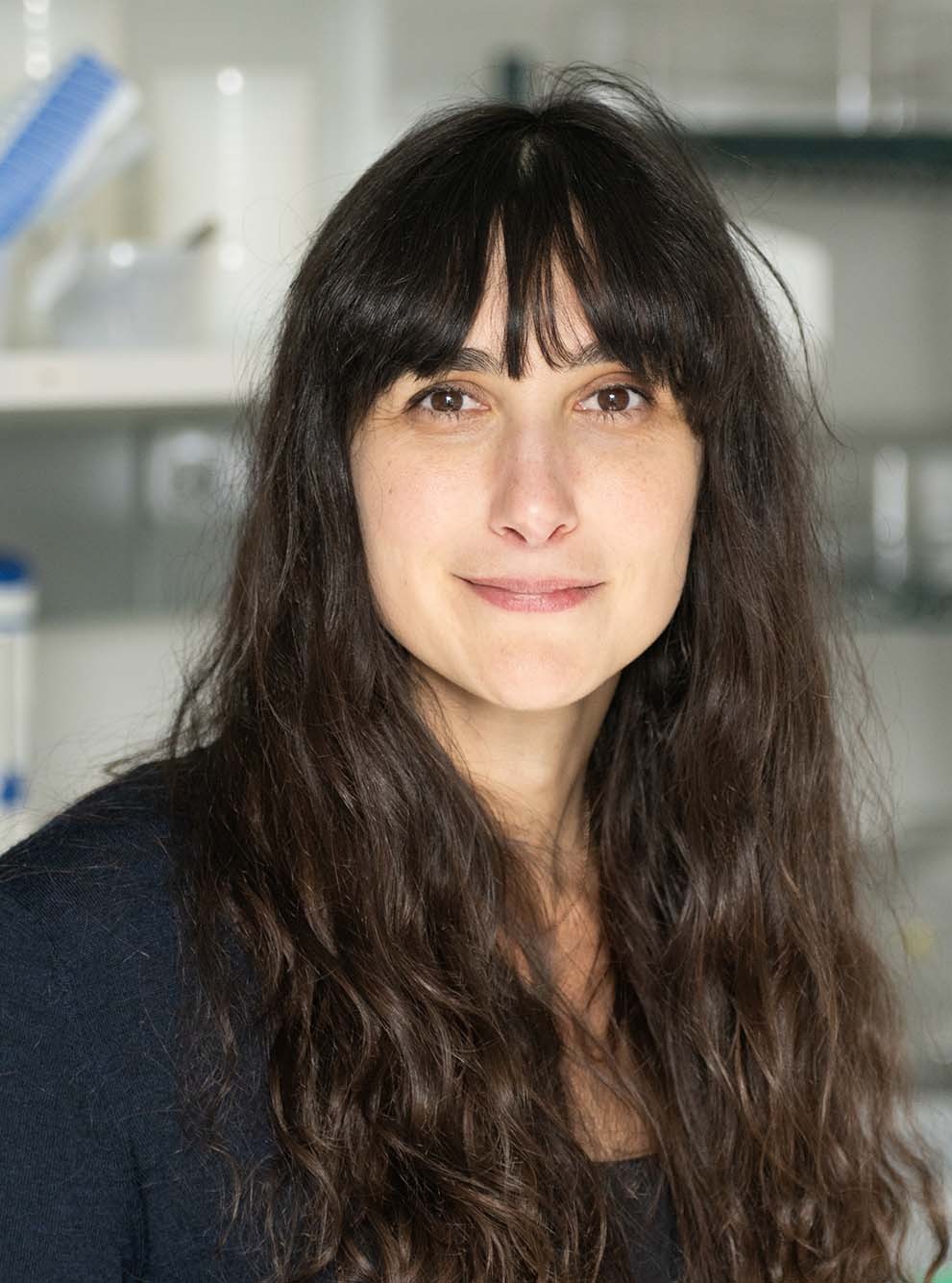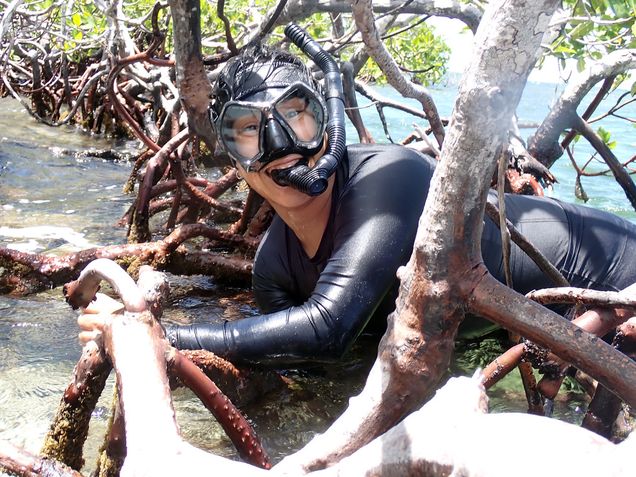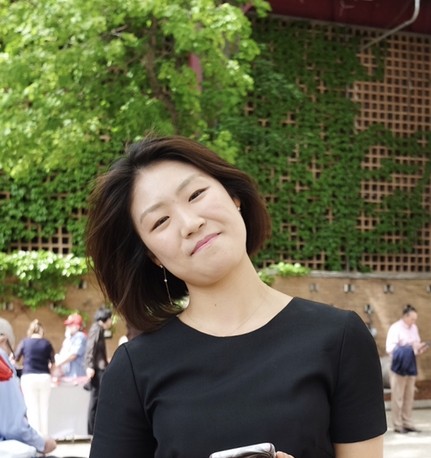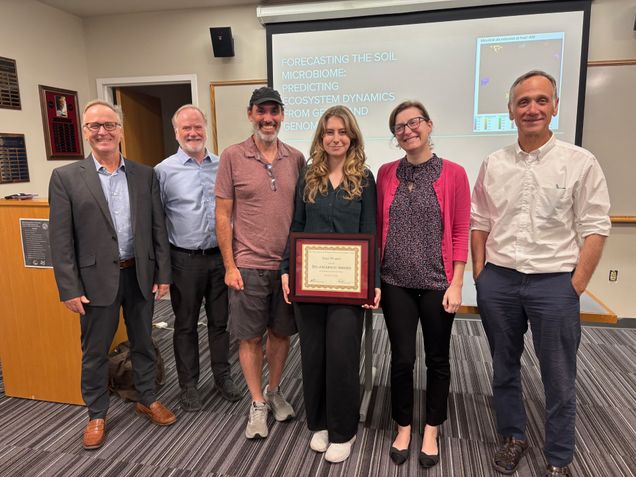Meg Younger and Jeffrey Marlow selected as 2026 Frontiers of Science Fellows


Dr. Meg Younger and Dr. Jeffrey Marlow were selected by the National Academy of Sciences as 2026 Frontiers of Science (FoS) Fellows. The National Academy of Sciences recognized 81 young researchers in variety of professional fields such as industry, academia, and government. Fellows are aged 45 or younger, already making an impact across a number of disciplines, often having already received awards for their contributions to science. Fellows will also participate in a Frontiers of Science symposia.
Dr. Marlow researches microbial communities within their surrounding, often extreme environments. His lab's work is relevant to astrobiology, but also has major potential applications on our planet Earth, such as the advancement in understanding the formation and consumption of greenhouse gases. In addition to being a FoS fellow, he has been named a National Geographic Emerging Explorer, Scialog Fellow, and an Explorers Club Rolex Explorer. Marlow also founded the Ad Astra Academy to bring science exploration and materials to under-resourced students.
Dr. Younger researches mosquito olfaction in order to investigate how mosquitoes use their sense of smell to find humans. Her lab develops strategies to uncover how mosquitoes process scent information. Younger's research aims to aid in the prevention of disease transmission via mosquito bites. Younger has also earned previous awards such as the NIH Director's New Innovator Award, the Smith Family Award for Excellence in Biomedical Research, and the Wellcome discovery Award, just to name a few.
Dr. Younger and Dr. Marlow will be participating in the U.S. symposium taking place in Irvine, California from March 5-7.
Congratulations Meg and Jeff!
Wally Fulweiler Featured in The Brink

Dr. Robinson "Wally" Fulweiler was featured in The Brink for oyster-environmental research in her mobile laboratory with research technician Drew Bouchie (CAS’ 24). The van her family helped turn into a research laboratory is named the Public Engagement and Aquatic Research Lab (PEARL). Equipped with a solar paneled roof and all necessary appliances, the PEARL has made its way to different points along the Northeast Coast sampling oyster, water, and sediment for analysis.
Oysters act as natural water filters for pollutants like nitrogen, which makes its way into marine ecosystems from agricultural runoff and wastewater. The lab measures denitrification in cylinders, or "cores," containing farmed oysters, and collected water and sediment samples. With this data, PEARL aims to investigate the nitrogen cycling budget of coastal communities.
Community collaboration and interest has been a major feature to the PEARL. Fulweiler and Bouchie work with local water quality managers and specialists, and also leave the back of the van open for community members to stop by and ask about their research. Bouchie, who now leads research with the PEARL, told The Brink, “Making our lab visible to the public makes our work important, even before we have results or analyze the data. It’s fulfilling already.”
The team will carry on with their research into next summer, and hopes to expand further along the coast.
Read The Brink article here
Work on Science Funding Crisis Published in Behavioral Ecology and Sociobiology by Traniello Lab
Behavioral Biology Major 2025 graduates Luke Buza, Sofia Weaver, Lucy McCabe, Tufts Consortium student Isabella Arabia, together with James Traniello, published an editorial in Behavioral Ecology and Sociobiology voicing their individual and collective frustrations with the current federal funding crisis and the denigration of science pervasive in our society.
In their editorial The crisis in science funding threatens the careers of future behavioral ecologists, the recent graduates – now eager to enter graduate school – discuss how a lack of support is influencing their futures. First author Luke Buza is “glad our voices are being heard. I am hopeful for the conversation to continue, and ask my peers to stay resilient and committed. I am fully dedicated to science and will not be deterred.” Lucy McCabe notes “By publishing our experiences, we've managed to steady an ever-shifting spotlight over our struggles as budding science professionals in this time of uncertainty." For Isabella Arabia, the editorial “gave me the space to process my feelings and provided an outlet to speak on my passion for STEAM (Science, Technology, Engineering, Art and Mathematics) education. In times like these, bridging the gap between research and outreach is imperative to the scientific process, because building trust with the public starts with making discoveries accessible, not just to other scientists, but to all people.”
The article is receiving much attention, ranking in the 74th percentile of all articles of a similar age in all journals.
Dr. Meg Younger Featured in the Brink

Dr. Meg Younger was featured in The Brink alongside BU School of Public Health (SPH) Assistant Professor of Epidemiology, Dr. Julia Bond, for being awarded with the National Institute of Health's (NIH) Director's New Innovator Award. Meant to support "early career investigators of exceptional creativity who propose bold and highly innovative research projects," the award funds research with $450,000 annually for five years.
Dr. Younger will use the funding to strengthen her research on mosquito olfaction, particularly investigating how mosquitoes use their sense of smell to find humans. In her interview with The Brink, Younger describes her lab's investigation of strategies to uncover how mosquitoes process scent information. Younger hopes her research can advance the prevention of disease transmission via mosquito bites.
Read more about The Brink's interview with Younger here.
Congratulations to Dr. Meg Younger!
Sabrina Samad Shoily Receives AAUW Fellowship

Biology PhD student Sabrina Samad Shoily of the Garcia-Marcos Lab recently received an International Fellowship from the American Association of University Women (AAUW). This fellowship promotes education and equity for women by investing in international applicants who will be pursuing postgraduate studies or research in the U.S., with the intention of applying their expertise, professional skills, and leadership in the context of their home countries.
Sabrina's research focuses on developing biosensors for detecting G protein-coupled receptor (GPCR)-G protein activity with high fidelity. She will study cellular signaling made by receptors that regulate women’s health by using genetically-modified mice and high precision biosensors in relevant cellular systems. The approach has the potential to lead to developing more precise and effective therapies for hormone-related health issues in women. Her long-term aim is to lead a team of academic researchers focused on cellular signaling and to prepare future scientists through training and mentorship.
Congratulations, Sabrina!
Mu-Han Chen and Ninon Martinez Awarded Graduate Research Fellowships by the International Coral Reef Society
PhD student Mu-Han Chen of the Davies Lab and PhD student Ninon Martinez of the Finnerty Lab were both recently awarded Graduate Research Fellowships by the International Coral Reef Society. This award provides funding to aid in the cost of research.
 Mu-Han studies how diel thermal variability (DTV) influences energy allocation in the Caribbean coral Siderastrea siderea. Building on her group’s year-long transplant experiments in the Bocas del Toro Reef Complex (BTRC), Panamá, she will compare skeletal growth and fecundity between low- and high-DTV reefs to identify trade-offs between coral growth and reproduction. Combined with physiological and gene expression data, her work will provide a comprehensive view of how environmental variability shapes coral fitness and resilience in a warming ocean. Mu-Han studies how diel thermal variability (DTV) influences energy allocation in the Caribbean coral Siderastrea siderea. Building on her group’s year-long transplant experiments in the Bocas del Toro Reef Complex (BTRC), Panamá, she will compare skeletal growth and fecundity between low- and high-DTV reefs to identify trade-offs between coral growth and reproduction. Combined with physiological and gene expression data, her work will provide a comprehensive view of how environmental variability shapes coral fitness and resilience in a warming ocean. |
 Ninon will seek to understand how local adaptation of corals across different marine habitats may contribute to coral survival, offering critical insights into the potential for coral populations to persist in a changing world. Ninon will seek to understand how local adaptation of corals across different marine habitats may contribute to coral survival, offering critical insights into the potential for coral populations to persist in a changing world. |
Congratulations, Mu-Han and Ninon!
Matteo Finnerty and Richard Primack Featured in the Brink

Undergraduate student Matteo Finnerty and Professor Richard Primack were recently featured in The Brink, which delivers the latest news about research and discoveries from faculties and students.
Finnerty and Primack are part of the research team conducting fieldwork on pollinators at the Arnold Arboretum. Read more about their research and watch a video about their fieldwork here.
So Young Bae Receives Invitation and Award to Speak at the American Crystallographic Association in Chicago

MCBB PhD student So Young Bae of the Tolan Lab received a Travel Award to present her research at the 2025 American Crystallographic Association (ACA) Annual Meeting. Her work was selected for both a 30-minute oral presentation and a poster presentation, and marked a notable achievement in the field of structural biology of ketohexokinase.
So Young delivered her oral presentation in this highly competitive “Cool Structures” session on Tuesday, July 22, titled, “Dual Substrate Binding Stabilizes the Catalytic State in Ketohexokinase.” Her research demonstrated that the enzyme ketohexokinase (KHK), essential in fructose metabolism, reaches its active form only when both ATP and fructose are bound—supporting a dual-substrate induced-fit mechanism. These findings have implications for understanding and potentially targeting metabolic disorders such as Type-2 diabetes, obesity, and non-alcoholic fatty liver disease.
In her poster presentation, “Structural Insights into E. coli Fructose-1-Phosphate Kinase Reveal Evolutionary Divergence within the PfkB Family,” So Young shared a high-resolution crystal structure of the bacterial enzyme from the FruK gene. Her analysis shed light on how bacterial sugar kinases differ structurally and functionally from their human counterparts.
So Young's research was conducted under the mentorship of Dr. Dean R. Tolan and Dr. Karen N. Allen and supported by NIH and Series-A funding from a small pharmaceutical company, exemplifying the departments’ strengths in interdisciplinary and translational structural biology.
Congratulations, So Young!
Jared Tague Receives 2025 Master’s Research Award

Jared Tague of the Ho-Beffert Lab is this year's recipient of the Master’s Research Award. This award provides a one-semester Research Assistantship to a continuing Biology MS student who stands out in their field of research.
Jared studies the molecular mechanisms of reelin signaling and its implications in brain development and Alzheimer’s disease. His research focuses on creating a robust purification process for reelin and one of its receptors, APOER2. Once isolated, he will be able to better investigate their biochemical interactions and structural features using binding assays and cryo-electron microscopy. Jared received his BS from Umass Lowell and then worked at Biogen where he gathered experience in neurodegenerative disease therapeutics development and protein biochemistry. Outside of the lab, he enjoys swimming at Crystal Lake, bar trivia, book club, and spending time with his friends and his cat.
Congratulations, Jared!
Zoey Werbin Receives 2025 Belamarich Award

Dr. Zoey Werbin of the Bhatnagar and Dietze Labs was selected as the winner of the 2025 Belamarich Award for her doctoral dissertation in Biology titled “Forecasting the Soil Microbiome.” The selection committee was impressed by Zoey’s ability to quickly and effectively adapt bioinformatics tools to predict the distribution of microbial populations, and implement new methods for metagenomic analyses. The committee also appreciated the fact that Zoey’s tools and databases will be broadly useful to the wider research community, and her willingness to lend her skills to the projects of other lab members. More information about her research is below.
Zoey studied the ecology of the soil microbiome, using tools from bioinformatics, Bayesian statistics, and synthetic biology. She developed short-term microbial abundance forecasts at a continental scale, as well as fine-scale predictions of soil nutrient cycling. She's interested in using the power of microbial communities to solve the biggest problems facing humans and our planet. Her graduate work was funded by a Graduate Research Fellowship from the National Science Foundation, as well as a Microbiome Fellowship from the Boston University Microbiome Initiative.
As in previous years, there will be a Belamarich Award Night to celebrate our award winner. The night includes a seminar given by the awardee, a brief ceremony, and a reception. The Seminar will be held on Monday, October 6th at 4:00pm in BRB 113. The Award Ceremony will take place immediately after, with the Reception following down the hall in BRB 117, from ~5:00pm-6:30pm. We are honored to have the Belamarich family joining us again to celebrate this year’s award winner.
We look forward to seeing everyone at Belamarich Award Night!
More about the Belamarich Award:
Frank A. Belamarich joined the BU Biology Department in 1963 as an assistant professor where he quickly gained international recognition for his research in the field of comparative hemostasis, the process of blood clotting. Throughout his tenure at BU he was a popular teacher of a core course in cell biology which he developed. Belamarich maintained research laboratories in Boston as well as at the Marine Biological Laboratory at Woods Hole in Falmouth, MA as part of the BU Marine Program.
Congratulations, Zoey!
